Holiday weight gain
Christmas cookies, eggnog, late-night leftover ham sandwiches: All that holiday joy adds up to at least a pound a year, but studies suggest that you never really take it off. Keep eating everything you want over the holidays and you'll end up looking like Santa when swimsuit season rolls around. Try these tips to avoid holiday weight gain.Choking
You may wish your mother-in-law would choke on her snarky comments, but choking is a serious health hazard. Nearly 3,000 people in the United States die each year from choking, according to the National Safety Council, and since you're eating more during the holidays anyway, better chew your chestnut pudding and pumpkin pie well. To avoid choking, take small bites, chew slowly and carefully, and avoid talking or being distracted while eating. Be wary of high risk foods including hotdogs, grapes, candy with nuts, and hard fruits and vegetables.Poisonous holiday plants
Hold the holly (and mistletoe) if you plan to have small children or pets around during the holidays. All can be toxic, and even pine cones and falling berries can pose a choking hazard. Best bet is to make sure no one smaller than a holly bush gets near seasonal plants this year.Deep-fried-turkey fireballs
Deep-frying your turkey can be so dangerous that Underwriters Laboratories, the product safety certifier, has refused to stamp any fryers on the market with its iconic UL logo. From 1998 to 2007, there were at least 138 incidents involving turkey fryers that caused 36 injuries and more than $7.8 million in property loss. (Watch UL techs demonstrate the perils of frying.) Still, if you must deep-fry your bird, follow your fryer's instructions carefully, and heed these safety tips.Holiday heart attacks
Think the weather outside is frightful? Check the perfect storm of heart attack risk factors looming on the horizon. It’s the worst time of year for heart trouble, with heart-related deaths peaking in late December and early January. (The deadliest day? December 25, according to one study.) Why? There are lots of reasons: holiday stress, heavy meals (a known heart attack trigger), ignoring chest pain for fear of disrupting the festive mood, skipping meds in the hustle and bustle, and understaffed hospitals. Stay safe by being aware: Take your meds and watch for symptoms. Oh, and moderation is key.Flammable Christmas trees
Each year, more than 400 residential fires involve Christmas trees, resulting in as many as 40 deaths and 100 injuries. In fact, though Christmas trees cause the fewest holiday-related fires, they account for the greatest percentage of deaths, according to a recent report by the Centers for Disease Control and Prevention. The safest tree is a flame-resistant artificial one; follow this advice if you want to bring a fresh one home.Toy horrors
Besides troublesome questions about the safety of toys made in China, now you must face the most dreaded of all holiday hazards—opening the gifts. Sounds simple, but each year about 6,000 people in the United States visit the ER with wounds from trying to pry, slice, or stab open gifts encased in hard plastic "clamshells" or held down with a thousand metal twist ties. Some retailers, including Amazon, Sony, Microsoft, and Best Buy, are moving toward easy-to-open packaging. Learn more about the health hazards of the toys themselves.Seasonal car accidents
Thanksgiving is not only a traffic-filled holiday, it's also one of the most deadly. In 2006, 623 people lost their lives in car crashes. Christmas and New Year's, when alcohol is responsible for nearly half of accident fatalities, also have their share of road peril.To stay safe from those statistics, John Kennedy, executive director of the Driver and Roadway Safety Department of the National Safety Council, offers these tips.
• Always wear your safety belt and have children in properly installed car seats.
• Stay sober or designate a driver.
• Keep your eyes on the road. Let passengers enjoy the scenery and chat on the phone.
• Maintain a safe following distance from the car in front of you.
• Plan your route ahead of time.
• Give your car a winter once-over: Check ignition, brakes, hoses, fan belts, spark plugs, tire air, headlights, battery, and wipers. Carry a shovel, jumper cables, tool kit, and a bag of salt or cat litter for traction.
• Don't drive early on Saturday morning. "It's a very hazardous time. A lot of people are driving under the influence or drowsy," warns Kennedy. And if you can stay in or use public transportation on New Year's Eve, do it.
Sledding catastrophes
As George Bailey from It's a Wonderful Life could tell you, sledding can be very dangerous. What seems like good, clean family fun causes 33,000 injuries each year, according to the National Safety Council. Before you hit the hill, read these safety tips from the NSC.• Keep all equipment in good condition.
• Choose a spacious, gently sloping hill free of trees, fences, rocks, or other obstacles—and make sure it doesn't cross traffic.
• Do not sled on or around frozen lakes, streams, or ponds (like poor little Peter Bailey did).
• Assume the proper position: Sit or lie on your back on the top of the sled, with your feet pointing downhill.
• Wear thick gloves or mittens and protective boots.
Sleep problems
A good night's rest is often the first thing we sacrifice in the midst of late-night parties, early-morning shopping, and year-end deadlines. For people traveling on vacations or to relatives' houses, obstacles such as red-eye flights, jet lag, and unfamiliar bedrooms can disrupt z's as well. But skimping on sleep can lower immunity, increase stress levels, and lead to weight gain; plus, it raises your risk for depression and automobile accidents. As tempting as it is to ignore, it's important to make sleep a priority to ensure a happy and healthy holiday.Decorating disasters
Decorations sure are pretty, but the fact that more than 5,000 people are injured in decorating-related falls each holiday season is not. To make sure you're not a statistic this year, do the following when stringing lights or hanging mistletoe.• Check that the ladder is on secure and level ground.
• Space the ladder 1 foot away from the wall for every 4 feet high it reaches.
• Stay centered between rails and do not overreach.
• Don't step on the top two rungs.
• For roof access, extend the ladder at least 3 feet above the roof.
• Keep the top and the bottom of the ladder clear of obstacles.
• Make sure the ladder is locked open.
http://www.health.com
 11:09 AM
11:09 AM
 About the World
About the World
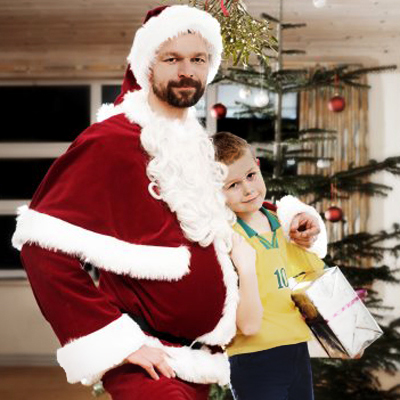

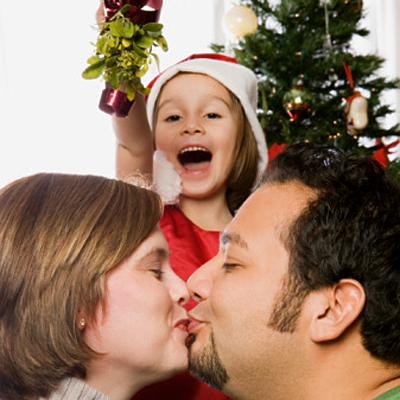
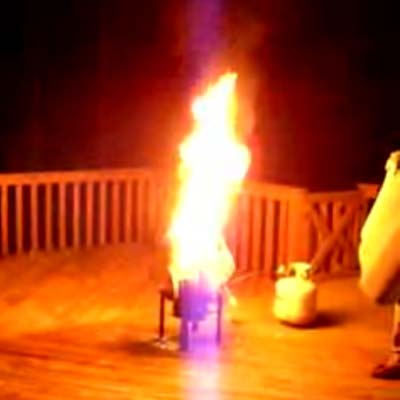

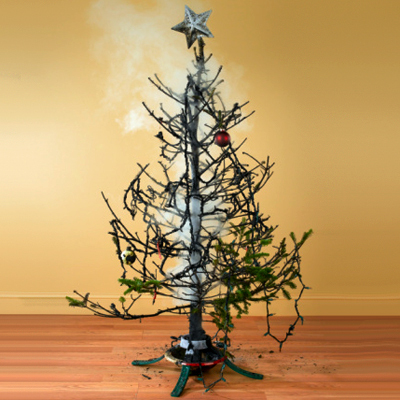
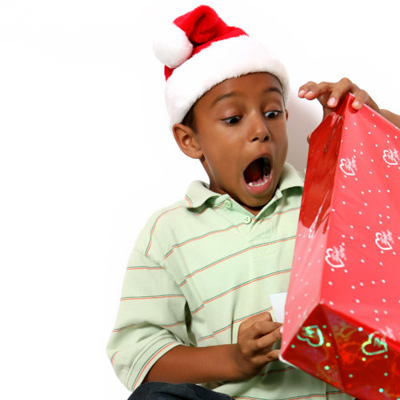
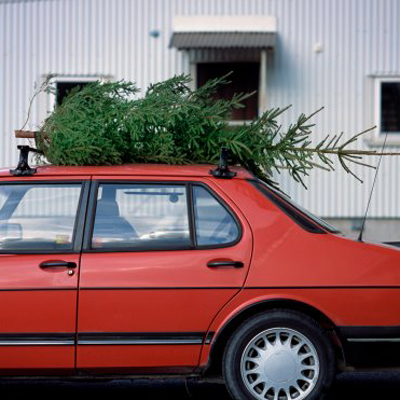
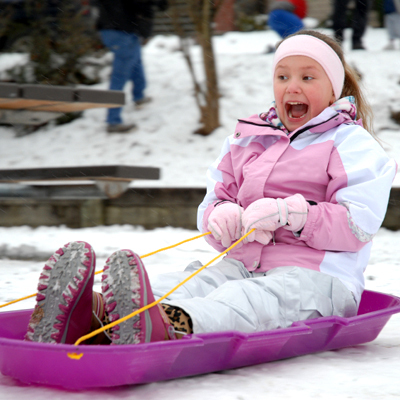
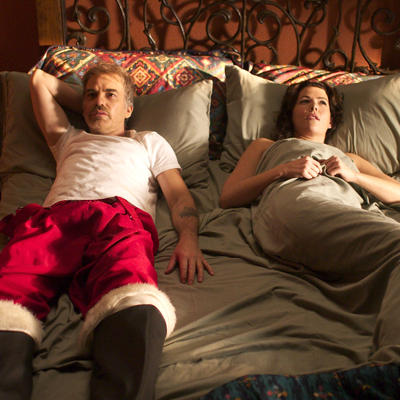



0 comments:
Post a Comment